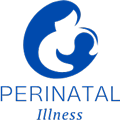“…Depression is not sobbing and crying and giving vent, it is plain and simple reduction of feeling…People who keep stiff upper lips find that it’s damn hard to smile” said Judith Guest. If you are currently suffering from postnatal depression (also known as postpartum depression) or have experienced it in the past you are not alone. Many women continue to suffer from postnatal depression, which usually develops and begins to affect your daily life between four and six weeks after giving birth. It is however also possible for depression to take up to a couple months to develop.
According to the Centers for Disease Control and Prevention (CDC) 8 to 19% of women in the United States (US) experienced postpartum depression symptoms in 2013 and 8% of pregnant women experienced major depression. [1] In the UK it has been estimated that 10-15% of new mothers experience postnatal depression. However, like many other conditions, there are unreported cases and people are afraid to seek help. Postnatal depression is actually much more common than we think, making experts believe that these percentages are only half of those who are actually suffering from postnatal depression and relate symptoms.
What about the father? Men can also experience postnatal depression, which is obviously associated with slightly different symptoms but non-the-less the same. In 2013, approximately 4% of men within the US experienced depression in the first year of their child’s life. [1]
Why Did I Get Depressed After Having My Baby?
Postpartum depression is caused by a mixture of things rather than one single key factor alone. Being a new mother can be stressful, with all the new emotions that come along with having a new baby, both emotional and physical stresses begin to build up. You may also be worrying about how you are going to afford things now that you have another mouth to feed and another body to cloth, or who is going to help you out when you need a break. All of these situations and emotions along with the hormonal change that your body goes through after giving birth stir up a crazy cocktail that can play a major role on your body which can result in depression.
Am I At High Risk Of Developing Postnatal Depression?
You may be sitting there thinking “I do not know if I know anyone who has gone through this or not,” odds are you have and they have either not said anything or did not recognize they were depressed themselves. For those who tend to experience anxiety or suffer from depression before or during pregnancy are more likely to experience postpartum depression as well. For those who have had a difficult time conceiving, are carrying more than one baby, or are of a young age (teenager) tend to also be at a higher risk of becoming depressed after giving birth.
For those who lose a baby or have complications during pregnancy, have a newborn that has to be hospitalized, or have a very difficult baby are also more likely to become depressed over a course of time as these situations play a major role in emotions, stresses, and how one views life at a certain time or period of time.
Postnatal Depression Symptoms
Postnatal depression has symptoms similar to that of the normally diagnosed depression among adolescents and adults. Having difficulty sleeping, low mood/lack of energy, and having the feeling that you are unable to cope with what is going on around you are sometimes mistaken as the “baby blues”. However, more common and more severe symptoms include: feeling detached/disconnected from your baby, worrying that you may in some way harm your newborn, or that as a new mother you will fail your child and not take care of them like a ‘good’ mother would. Seeking medical attention as soon as possible is important; it does not mean that you are a bad mother or that you do not love your child. It is a condition that is temporary and can be resolved with the help of medical experts.
Postnatal Depression Treatment
Like depression, postnatal depression can be treated in a variety of ways. Many doctors like to prescribe antidepressant medication as they believe it is the best for of treatment for many individuals. However, not everyone is so keen on taking medications to fix things. This allows for other treatment options such as exercise, cognitive-behavioral therapy, support groups, interpersonal therapy, and self-help.
Some women suffering from postnatal depression have also turned to hiring a nanny or Au-pair in order to provide the much needed help a newborn requires or to give her a little “me” time now and then. Hiring a parenting coach or going to infant and parenting classes have also become popular over the years.
Remember, that postnatal depression happens to a large number of women and that you are not alone nor are you a bad mother. Having a baby can be very emotion and is a huge responsibility. Getting help does not mean that you are weak; it means that you a strong enough to admit you need help in order to be the best mother you can be for your child.
References:
- Centers for Disease Control and Prevention. (2013, November 13). Depression among women of reproductive age . Retrieved from http://www.cdc.gov/reproductivehealth/depression/
- NHS. (2012, April 19). Postnatal depression. Retrieved from http://www.nhs.uk/conditions/postnataldepression/pages/introduction.aspx
